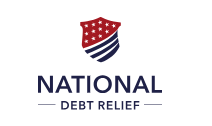Debt Settlement: Pros, Cons, and Alternatives

Debt settlement can offer a lifeline for those overwhelmed by large debts. It promises reduced balances and quicker relief from financial burdens. But debt settlement isn’t without risks, and it’s essential to carefully weigh the pros, cons, and available alternatives before making any decisions.
Here’s a comprehensive look at debt settlement, its advantages and disadvantages, and practical alternatives that might better suit your financial situation.
Understanding Debt Settlement
Debt settlement involves negotiating with creditors to accept less than the total amount you owe, typically a lump-sum payment. While beneficial in certain circumstances, debt settlement isn’t a universal solution. Understanding its full implications is crucial.
Pros of Debt Settlement
1. Significant Debt Reduction
Debt settlement can substantially reduce your overall debt, sometimes by as much as 40-60%. Creditors often accept partial payments to recover some money instead of risking total loss.
2. Faster Path to Debt Relief
Compared to other methods, debt settlement typically resolves debts faster—usually in two to four years—versus potentially decades of minimum payments.
3. Stops Creditor Harassment
Successfully settling your debts ends collection calls, letters, and harassment, providing immediate stress relief.
4. Avoids Bankruptcy
Debt settlement helps avoid the severe financial and credit damage associated with bankruptcy. It’s often viewed as a less drastic measure.
If negotiating settlements feels daunting, reputable companies like National Debt Relief provide professional negotiation, simplifying and streamlining the process effectively.
Cons of Debt Settlement
Despite its appeal, debt settlement carries considerable drawbacks:
1. Negative Credit Impact
Debt settlement typically harms your credit score, as settled accounts reflect negatively on your credit report. The damage, however, is usually less severe than bankruptcy.
2. Potential Tax Implications
Forgiven debt might be considered taxable income by the IRS, resulting in unexpected tax liabilities. If facing tax issues due to settled debts, consult specialists like Tax Debt to manage IRS obligations effectively.
3. No Guarantee of Success
Creditors aren’t obligated to settle debts. Negotiations might fail, leaving you financially vulnerable and further behind on payments.
4. Fees and Costs
Debt settlement companies often charge fees for their services. These costs can diminish your savings and slow your financial recovery.
When Debt Settlement Might Be Right for You
Debt settlement can be beneficial under certain conditions:
- You’re genuinely unable to repay the total amount owed.
- You’re already significantly behind on payments.
- You have funds available for lump-sum settlement offers.
- Bankruptcy is your only other realistic alternative.
In these cases, settlement could represent your best option for debt relief.
Effective Alternatives to Debt Settlement
If debt settlement doesn’t align with your situation, consider these viable alternatives:
1. Debt Consolidation
Debt consolidation combines multiple debts into a single, manageable monthly payment, often at lower interest rates. Companies like National Debt Relief can help consolidate debts, simplifying repayment without severely damaging your credit.
2. Credit Counseling & Debt Management Plans (DMP)
Nonprofit credit counseling organizations offer structured debt management plans, negotiating lower interest rates or fees without significant credit harm.
3. Balance Transfer Credit Cards
Transferring high-interest balances to a credit card with an introductory 0% APR can dramatically reduce interest charges, accelerating debt payoff if managed responsibly.
4. Bankruptcy (in Extreme Cases)
While generally considered a last resort, bankruptcy can provide relief if other options are unrealistic or unsuccessful. However, bankruptcy significantly damages your credit, so careful consideration is essential.
Protecting and Repairing Your Credit Post-Settlement
If debt settlement negatively impacts your credit, take immediate steps toward recovery. Monitor your credit regularly and address inaccuracies swiftly. Professional credit restoration services like Credit Repair can facilitate the dispute process, repairing your credit efficiently.
Choosing the Right Path to Debt Relief
Debt settlement offers potential benefits but comes with significant risks. Carefully evaluate your circumstances, considering professional assistance through trusted organizations like National Debt Relief, addressing tax implications via Tax Debt, and protecting your financial future through professional Credit Repair.
By understanding the pros, cons, and alternatives to debt settlement, you empower yourself to make informed financial decisions, securing lasting relief and stability.
Explore Our Categories

Credit Cards

Debt

Loans

Insurance

Retirement

Home Buying

Investing

Taxes
Free Yourself From Debt

National Debt Relief
✅ Reduce Your Debt – Pay Less Than You Owe!
✅ One Simple Monthly Payment – No More Juggling Bills.
✅ Get Relief From Credit Cards, Medical Bills & More
Ranked #1

